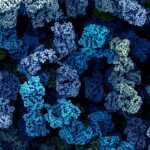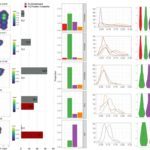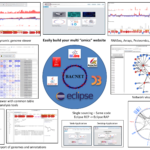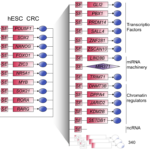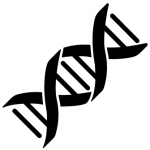The common theme of the group is the study of biological regulation through the lens of the information transactions that lead from the genotype to the phenotype. In particular, we deal with multiple kinds of sequencing information measured by high throughput sequencing technologies. The group encompasses a broad range of expertises that orbit around the study of transcriptomic and epigenomic data. Around these common themes, we take projects according to our main interests:
- Identification of the key molecular players that determine complex phenotypes like disease or pathogenicity by dissecting high dimensional data.
- Exploration of the role of epigenome-based regulation in maintaining a specific transcriptional status or tuning the transition between different biological conditions by integration of expression and chromatin status data.
- Quantification of the effect of transcriptomic and epigenomic variation in establishing a phenotypic output like the immune system response or the pathogen/vector adaptation.
- Use of single cell technologies (transcriptomics, ATAC-seq, multiome, spatial transcriptomics) to better resolve regulatory networks and understand how does the robustness of the epigenomic-mediated regulation is coded.
Additional and more specific interests of group members include:
- Quantitative description of the epigenomic and transcriptomic joint information.
- Development of automated analysis pipelines for epigenomic and transcriptomic profiling at bulk and single cell level.
We are familiar with mammalian and non-mammalian model organisms, vector insects and pathogenic bacteria. If your research question or favourite organism are not included among the above items, don’t hesitate to contact us, we are also experts on lateral thinking and we will make the most to propose a well informed solution.











